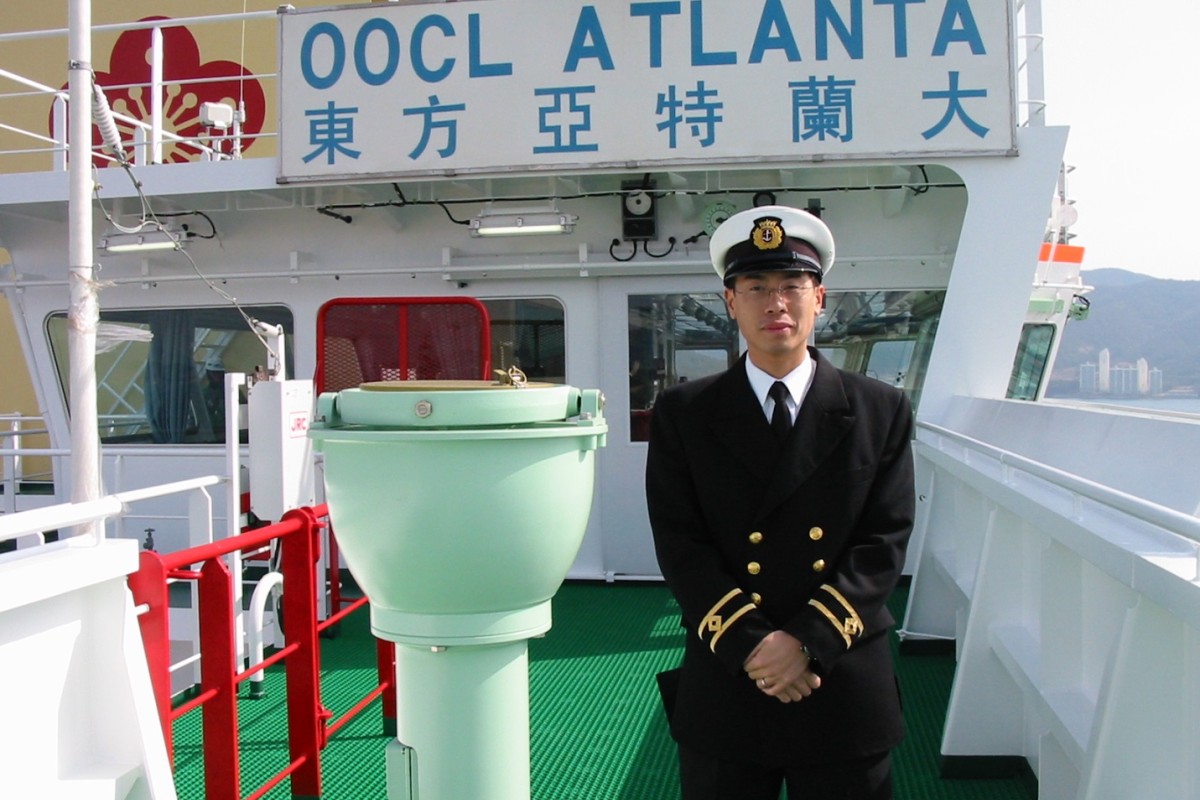
Maritime studies can be the start of a bright and rewarding career
Sponsored Feature
 Law Lap-keung is a senior marine officer and enjoys the challenges of a maritime career.
Law Lap-keung is a senior marine officer and enjoys the challenges of a maritime career.As a child, Law Lap-keung was intrigued by ships. “I lived by the sea near Wah Fu Estate and watched the big vessels passing by,” he says. “I gradually became interested in everything about ships.”
Thanks to the Hong Kong Polytechnic University (PolyU), which had launched the city’s first maritime degree to boost the then declining seafaring industry, he could take things further. In fact, Law was among the initial class of graduates to complete the course in 1998 and went on to join joined OOCL (Orient Overseas Container Line) as a deck cadet.
That experience proved unforgettable.
“We left Hong Kong, crossed the Pacific Ocean and sailed on to Europe via the Panama Canal,” he says. “The ocean was so vast that I barely caught a glimpse of any land. It was a moment of realisation of how very small I was.”
Later, when he was promoted to third officer, he assisted the captain with navigation. “I was only 24 and navigating a vessel weighing thousands of tonnes across the ocean. It was amazing.”
Keen to advance his career, he obtained his certificate as a master mariner in 2006 and, two years on, decided to take a shore-based job, joining the Marine Department as a marine officer responsible for overseeing vessel operations in ports.
“This job is very different from seafaring, but more challenging,” says Law, who is now a senior marine officer and head of the harbour patrol section, in charge of law enforcement and handling emergencies in the port. “I have to deal with many stakeholders and, every three years, am assigned to work in a different area.”
Many of his former classmates have similarly gone to have successful maritime-related careers. For instance, one became a senior harbour pilot and another is now vice-president of a shipping company.
According to Yip Tsz-leung, associate professor in PolyU’s Department of Logistics and Maritime Studies, time at sea can be a springboard to other high-flying roles. “Our graduates with seagoing experience now work in high-paying management positions in the maritime industry,” Yip says, adding that harbour pilots in Hong Kong can earn up to HK$300,000 a month.
To further boost Hong Kong’s status as an international maritime centre, PolyU has sought to attract local youngsters to the sector over the past decade, aiming to develop the next generation of professional seafarers. The university’s four-year BBA in international shipping and transport logistics (ISTL) is so far the city’s only business-based degree with an emphasis on maritime transport and logistics. The programme includes courses on ship construction and maintenance, cargo operations and management, and advanced navigation and ship handling.
“Students learn ship-handling with our simulator, as well as radio telecommunication systems at sea,” Yip says. “Some of our internship programmes let students go on board seagoing vessels where they live with the crew and gain hands-on experience.”
ISTL graduates can work as deck cadets of ocean-going vessels. Promotion to second officer, chief officer and master depends on gaining sufficient time at sea and passing the required professional examinations. It usually takes around 10 years to become a ship’s master, a high-paying role with a monthly salary of about US$10,000. That can also open the door to senior shore-based roles with shipping companies or as a fleet manager, ship superintendent or logistics manager with shipowners or ship management companies.
Alternatively, there may be opportunities to work as port captains, ship agency managers, container terminal managers, marine consultants, harbour pilots, shipbrokers, or with ship finance and marine insurance agents.
In addition, anyone with at least a year’s experience as chief officer on sea-going ships and a Class 1 master’s certificate can apply to the Marine Department to work as a marine officer. To widen the employment opportunities, the department recently proposed a new rank of assistant marine officer for those with a relevant degree but less experience at sea.
“The seagoing industry will not disappear,” Yip says. “Maritime knowledge is universal, so ISTL graduates can work in ship companies around the world.”
Back in 1998, as one of the first graduates, Law was setting out an unpredictable voyage. However, by showing courage and application, he has built a meaningful career and helped to open doors for others.
“I love my job,” he says. “Seafaring gave me satisfaction when navigating ships and my current job is important for the local community.”
Learn more about the programmes on offer at www.polyu.edu.hk/lms